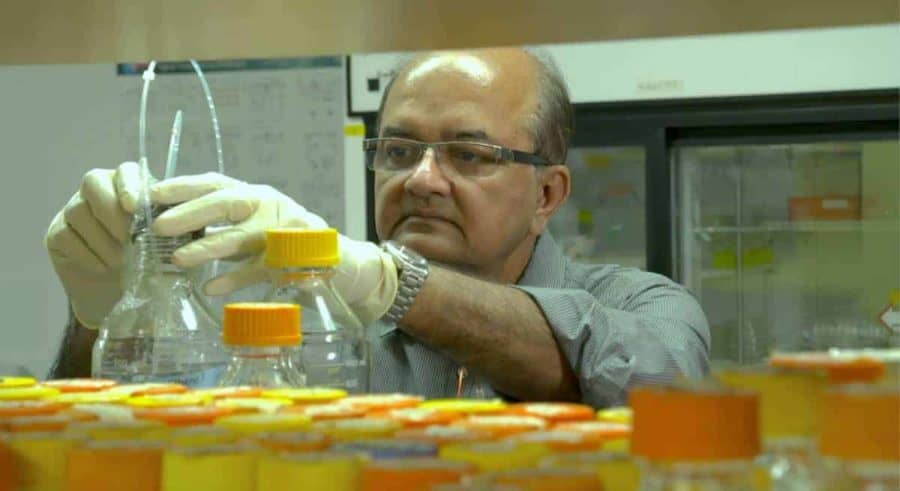Debopam Chakrabarti, an infectious disease specialist at UCF, recently received a $3.8 million grant from the National Institutes of Health to use fungus-derived compounds to develop better treatments for malaria.
He is partnering with Robert Cichewicz, a natural-product chemist from the University of Oklahoma, who has collected over 65,000 fungal isolates mostly from fungi naturally occurring in soil samples. They have found that the doughnut-shaped cereal, Cheerios, provides the ideal growing condition to cultivate fungi that are being studied for their ability to kill Plasmodium, the parasite that causes malaria.
The sugar in Cheerios is a good nutritional source for the fungus and the cereal’s symmetry in size and shape provides a precise, uniform growing environment. Small variations in media can alter fungi growth, meaning researchers can’t consistently produce the same set of results with each experiment.
Preliminary screening identified more than 150 fungal extracts and compounds with potent antimalarial activities.
The team has so far screened about 4,000 fungal species as well as pure compounds derived from fungi. Their preliminary screening identified more than 150 fungal extracts and compounds with potent antimalarial activities.
Their five-year project hopes to narrow this number to 25 compounds with verified antimalarial benefits at various stages of infection, that can be developed into therapeutic drugs. Once the scientists have identified these compounds, they will study them to understand their chemical mechanisms as well as screen them for toxicity.
Malaria is one of the world’s most common infectious diseases, responsible for over 400,000 deaths per year, predominantly in sub-Saharan Africa. About 80 percent of these deaths are children under age 5. The disease is transmitted through a bite from a mosquito infected with the Plasmodium parasite. Patients with malaria often experience fever, chills and flu-like illness. Left untreated, they may develop potentially fatal complications such as organ failure.
Malaria is becoming increasingly difficult to treat because the disease is mutating and becoming drug resistant.
“There is a pressing need for novel therapeutic options to treat multidrug resistant malaria,” Chakrabarti says. “Current therapies are very effective against malaria, but the problem is the parasite is developing resistance. And so even though this will be a long and tedious project, it’s important to have new drugs being developed in the pipeline and play our part in contributing to the global malaria elimination campaign.”
Chakrabarti has been researching malaria at UCF for 25 years. A professor in the Burnett School of Biomedical Sciences, he joined the university in 1995 and was one of the first UCF faculty members to receive an NIH grant. He received his doctorate in biochemistry from the University of Calcutta and did post-doctoral training in molecular biology at the University of Nebraska-Lincoln.
If our reporting has informed or inspired you, please consider making a donation. Every contribution, no matter the size, empowers us to continue delivering accurate, engaging, and trustworthy science and medical news. Independent journalism requires time, effort, and resources—your support ensures we can keep uncovering the stories that matter most to you.
Join us in making knowledge accessible and impactful. Thank you for standing with us!

